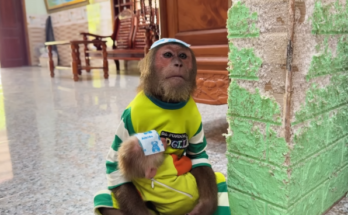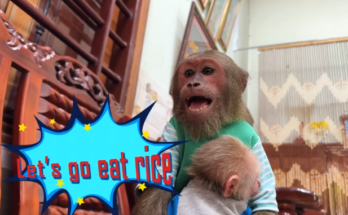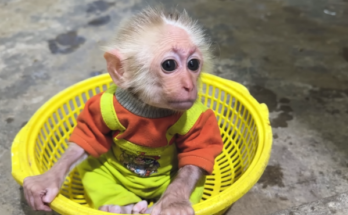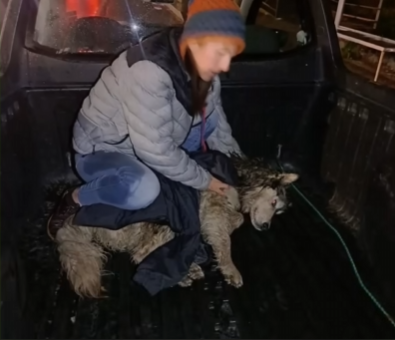
The night was cold — that kind of cold that creeps under your skin and makes even the stars look lonely. The road stretched out endlessly under the dim orange glow of a single streetlight, and the hum of the old engine was the only sound breaking the silence. The boy sat in the backseat, thin arms wrapped around his chest, trying to ignore the growl in his stomach. He hadn’t eaten since morning. His eyes, wide and full of exhaustion, followed the dark silhouette of his father driving in silence.
For as long as he could remember, his father’s voice had been thunder — loud, sharp, unpredictable. But tonight, it was worse. It was the silence that terrified him more than any scream ever could.
“Dad,” he said softly, his voice cracking from dryness, “I’m hungry.”
No answer. The man’s knuckles were white around the steering wheel. His eyes stayed fixed on the road ahead, jaw tightening as if every word from his son was a stone added to his burden.
The boy tried again. “Did I do something wrong?”
A flicker of pain flashed across the man’s face, too brief to notice unless you were watching closely — and the boy always watched closely. He’d learned to read moods, to predict storms before they came. But tonight, there was no warning. Just the cold, and that heavy, suffocating silence.
The car turned down a narrow dirt path that led away from the town — a road the boy didn’t recognize. Trees on either side pressed close together like silent witnesses. His heart started to pound.
“Where are we going?” he asked, his voice trembling.
His father didn’t reply. He just pressed his foot on the gas, the car bouncing over the uneven ground. The boy’s stomach twisted, both from hunger and fear. He looked down at his small hands resting on his knees — scraped, thin, and trembling.
They came to a stop beside an abandoned field. The man killed the engine. The world went quiet again.
He sat there for a long time, staring at the darkness outside. The boy wanted to speak, to reach out, but something in his father’s stillness froze him. The air was thick with something unspoken, something dangerous.

Finally, the man turned around. His eyes were red, wet, tired — not angry, but hollow. “Get out,” he said softly.
The boy blinked. “What?”
“Get out of the car.”
“But… Dad, it’s dark. It’s cold. Please—”
“Get out!” The sudden roar made the boy flinch. Tears sprang to his eyes. He obeyed, fumbling for the handle and stepping into the freezing night. His bare feet touched the rough gravel, and he winced at the pain.
The man got out too, slamming the door behind him. He walked around to the back seat, grabbed the small backpack that held all the boy’s things — a worn teddy bear, a cracked notebook, a single pair of socks — and tossed it onto the ground.
“Dad,” the boy said again, his voice breaking, “please don’t leave me.”
The man looked away, his lips trembling. “You’ll be fine.”
“No, I won’t! Please! I’ll be good. I promise I’ll be good!”
The boy rushed forward, clutching his father’s jacket. But the man pried his hands away. The tears on his face glistened faintly under the pale moonlight.
“You don’t understand, son,” he whispered hoarsely. “I can’t take care of you anymore. They’re looking for me. If you stay with me, you’ll get hurt too.”
The boy shook his head, sobbing. “I don’t care! I just want to be with you.”
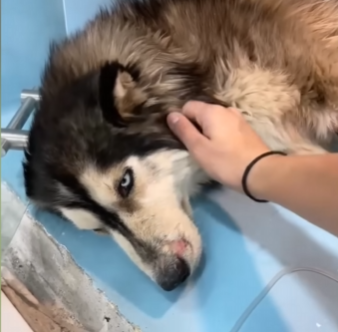
For a second, the man hesitated. His resolve cracked; his body leaned toward his son, as if ready to pull him into one last embrace. But then headlights flashed in the distance — a reminder that time was running out. His jaw tightened again.
He picked the boy up roughly and placed him back in the car, as if changing his mind. The boy felt relief — for a moment. But the car started again, and they drove farther, faster, deeper into nowhere.
The forest thinned, revealing a deserted road lined with rusting fences. The boy watched his father’s face, searching for some sign, some explanation.
“Dad?” he whispered one more time. “Why are you doing this?”
The man’s grip on the wheel tightened. His throat moved as he swallowed hard. “Because I have to,” he said, his voice breaking.
The car slowed to a stop again — this time beside a broken fence, half buried in weeds. The man got out and walked around to the passenger side. The boy’s heart raced. He didn’t know what was happening, only that something terrible was coming.
When his father opened the door, cold wind rushed in. The boy looked up, eyes wide, wet with fear and love.
“Dad, please…” he whispered.
But instead of pulling him close, the man grabbed him by the arms and lifted him out. The boy kicked and screamed, clutching at his father’s sleeve. “No! Please don’t leave me! I’ll be quiet! I won’t say anything! Please!”
The man’s face was a storm of agony. His eyes were glassy, his lips trembling. “I’m sorry,” he said — barely a whisper, more to himself than to the boy.
Then, before the boy could understand, before he could beg one last time, he felt himself thrown — tossed roughly to the side of the road, landing hard against the dirt. His breath caught in his chest. Pain shot through his arm.
The car door slammed shut.
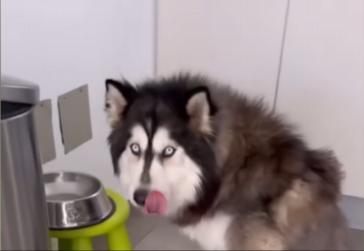
“Dad!” he screamed, scrambling to his feet, tears streaming down his cheeks. He ran after the car as it started to pull away. “Dad! Please! Don’t go!”
The car’s taillights glowed red, fading smaller and smaller, until they disappeared entirely into the dark horizon.
And then there was nothing.
The boy stood there, sobbing, calling out into the night — but no one answered. The only sound was the whisper of the wind through the trees, and the faint echo of his own cries.
He fell to his knees beside the road, clutching his backpack. Inside, the teddy bear stared back at him with one missing button eye — the only familiar thing left in a world that had suddenly become cruel and empty.
He didn’t move for a long time. Hunger gnawed at him, but it didn’t matter anymore. His small body shook from cold and heartbreak.
Hours passed before the first car appeared on the road. A woman in her forties, driving home from a late shift, saw the little figure curled up by the fence and pulled over.
“Hey, sweetheart,” she said softly, stepping out of the car, “are you okay?”
The boy looked up, blinking against the headlights. His lips were blue. “My dad… he left me.”
The woman’s heart broke instantly. She wrapped her coat around him, carried him into the car, and whispered, “You’re safe now, honey. I’ve got you.”
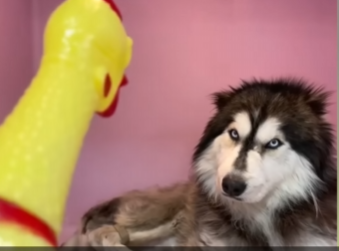
He didn’t respond. He just leaned into her warmth, clutching the teddy bear like it was life itself. His eyes stared blankly out the window, toward the darkness where his father had vanished.
Somewhere out there, that man sat in his own car, hands gripping the wheel, tears running freely down his face. He wanted to turn back — every part of him screamed to. But he knew what waited for him if he did. He whispered into the empty night, “Forgive me, son. Please forgive me.”
The boy never heard those words.
But years later, when he was older, when the world had given him a new home and a chance to heal, he would still wake sometimes in the middle of the night — heart pounding, the echo of that night still alive inside him.
He would remember the sound of the tires against gravel, the sting of cold air, and the look in his father’s eyes — that terrible mixture of love and despair.
And though he’d never fully understand why, part of him would always whisper into the darkness, hoping his father could somehow hear:
“I forgive you, Dad.”
